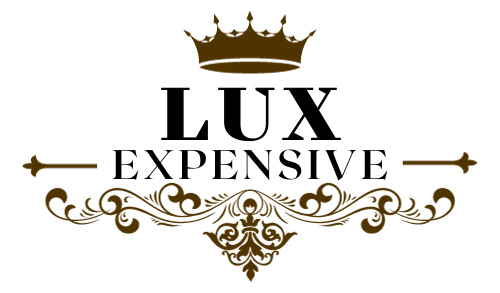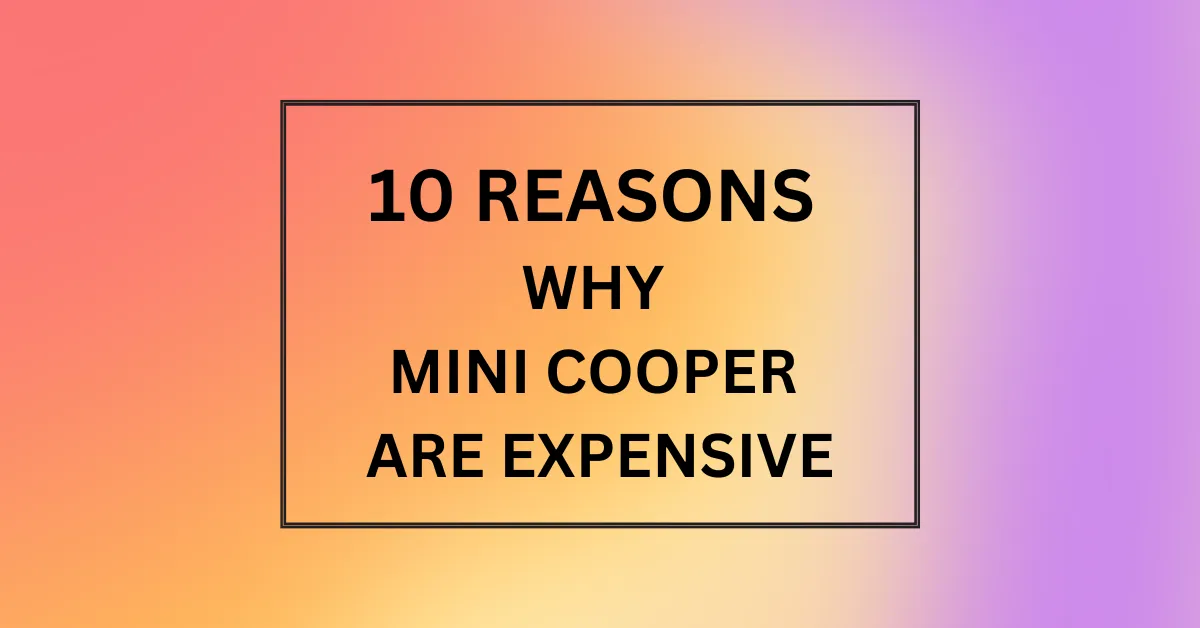Mini Coopers are expensive because they are a premium BMW brand that carries high customization options, manufacturing costs, safety ratings, performance capabilities, and standard features despite the small size, enabled by strong brand appeal and resale value that supports aggressive niche-based pricing needing to account for lower production volumes.
The Mini Cooper has cultivated an image as a cute, compact, and sporty little ride. But that stylish status comes at a pretty penny, making the Mini Cooper one of the most expensive small cars out there. So what exactly makes this tiny set of wheels cost so much.
Top 10 Reasons Why is Mini Cooper So Expensive
1. It’s A Premium Brand
As a premium brand under the BMW group, Mini Coopers are marketed as higher-end cars and come with premium price tags to match, even for their small size. The branding conveys superior quality, craftsmanship, and status, allowing Mini to demand more money for badging alone compared to other basic economy car brands.
2. High Customization With Unique Options
From sport seats to panoramic sunroofs, Mini Coopers have extensive customization for a small car. While these unique options add to the fun and personality of each Mini, they boost the starting price when added. Special edition Minis with exclusive paint colors or interiors can also demand higher prices than base models.
3. Attached To BMW Production Costs
As a BMW subsidiary, there are high production costs associated with making Minis since BMW manufactures them. This includes meeting BMW’s strict engineering and safety standards. The high-tech interior components and complex engine parts also drive up expenditures compared to basic economy car production costs.
4. Strong Resale Value Over Time
Thanks to its esteemed brand recognition and fanbase, the Mini holds higher residual trade-in value than rivals, with over 50% resale value after 5 years across models. Strong resale means the original buyer essentially made a good investment, while making new Minis pricier since pre-owned options have stayed desirable.
5. Aggressive Marketing Tactics
Mini spends plenty on distinctive advertising like viral stunts to cement itself as a fun, sporty icon in popular culture. By aggressively marketing itself as something more aspirational than just basic transportation through risky PR campaigns, Mini can justify charging beyond basic car prices and rely on lifestyle branding power.
6. High Safety Ratings Come At A Cost
While tiny, Minis are packed with standard safety features from airbags to stability control that have earned high marks from IIHS and NHTSA. Engineering strong crash test performance and high-tech safety gear for maximum occupant protection isn’t cheap but plays a role in rationalizing higher pricing for added peace of mind.
7. Performance Capabilities Factor In
With sporty cornering, tight steering feel, and willing turbocharged engines, Minis promise driving verve beyond other subcompacts for drivers wanting some thrills. Precision-engineered performance parts like sport-tuned suspensions or Brembo brakes enable spunky dynamics but utilize costly components factored into sale prices.
8. Long List Of Standard Features
Considering size, Minis come well equipped even at base trim levels with leatherette seats, rear cameras, Bluetooth, automatic climate control, heated mirrors, LED lighting, and more. Loading tiny cars with goodies normally reserved for larger vehicles or upgrade packages leaves less room for stripped-down lowball pricing.
9. Rising Inflation And Supply Chain Issues
In the wake of COVID-related factory shutdowns and component shortages, parts scarcity drove up supply chain costs across automakers, including Mini. Rising inflation also contributed to pricier operating and production expenses getting passed onto new car transactions, including for petite sets of wheels.
10. It’s A Niche Specialty Car
As a specialized vehicle made in lower volumes than economy car giants like Civic or Corolla, the quirky Mini occupies its own mini-segment without high-volume mainstream appeal. Lower production numbers leaves less room to spread costs across units, necessitating higher pricing for profitability as an lower-volume automaker catering to a niche rather than chasing maximum market share.
FAQS.
Is mini cooper A Good Brand?
Yes, Mini Cooper is considered a good brand due to their stylish design, reliable BMW engineering, fun driving dynamics, and lengthy list of customization options that allow personalization.
Are mini cooper Good?
Mini Coopers are regarded as good small cars thanks to their responsive handling, smooth ride, upscale cabin materials, high safety scores, decent fuel economy, and variety of technology and entertainment features even in base models.
Are mini cooper Worth The Price?
For buyers wanting a head-turning customized hatchback with an engaging driving experience, the capability, BMW pedigree and strong resale value make Minis worth the above-average asking price.
Where To Buy mini cooper?
Interested buyers can purchase new Mini Coopers directly from local dealerships across the country that sell the Mini brand, or pre-owned options can also be found at used car retailers, private sellers, and across major used car websites.

